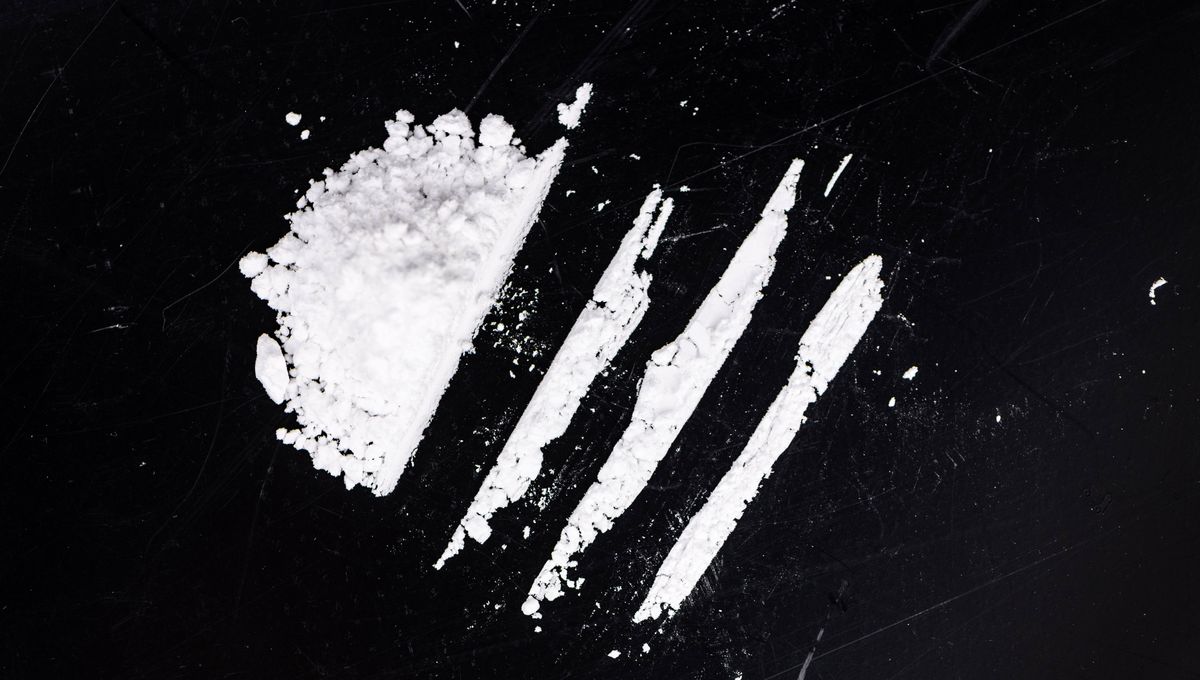
Cocaine usage is on the rise in the UK and America, and it can cause a range of serious adverse health conditions, including significant sinus and nasal damage. But a new study suggests that this consequence is routinely misdiagnosed as a rare but otherwise nonthreatening nasal disease.
Cocaine is a stimulant made from the leaves of the South American coca plant and is considered to be one of the most addictive substances in the world. Existing research suggests that its use differs between age, ethnicity, gender, and employment status, as well as geographic location. It is now the second most commonly abused drug in the UK, with 2.6 percent of the adult population (aged between 16 and 59 years old) having used it. Meanwhile, in America, 4.8 million people took the drug in the last year.
The frequent use of cocaine causes the brain to adapt to the substance so that the reward pathway becomes less sensitive, which coincides with changes in mood when not on the drug. This means users become increasingly irritable and unhappy when not under its influence, causing them to seek more of the drug instead of focusing on everyday activities, such as relationships, food, and other social expectations.
Cocaine also causes organ damage, especially to the heart, and is linked to an increased risk of stroke. But in this latest study, researchers discovered that the damages caused by cocaine usage to the sinus and nasal passages are frequently misdiagnosed as Granulomatosis With Polyangiitis (GPA).
GPA causes inflammation of the blood vessels in the nose, sinuses, throat, and lungs. Originally called Wegener’s granulomatosis, the condition belongs to a group of blood vessel disorders known as vasculitis. It can be developed by anyone, including children, but is most common in adults. Although it is not known for certain, evidence suggests that GPA is caused by a problem with the immune system, which means that it is often treated with immunosuppressants.
According to the new study, evidence shows that cocaine use triggers the production of specific antibodies that lead to clinical signs that are extremely similar to those present in GPA patients. These symptoms, coupled with fatigue, skin rashes, and arthralgia – joint pain – make it difficult for doctors to correctly diagnose damage caused by drug use.
GPA is uncommon, present in about three out of every 100,000 people. The results of this study suggest that the misdiagnosis of cocaine-induced disease is serious as the types of treatment used for GPA could be dangerous for persistent cocaine users.
“Immunosuppression is associated with significant risks, particularly infection,” the authors explained. “Inappropriate use can cause significant harm.”
In order to investigate this situation, the researchers conducted a retrospective review of patients who had visited the vasculitis clinics at Queen Elizabeth Hospital in Birmingham and the Royal Free Hospital in London between 2016 and 2021. They identified 42 patients who had disclosed cocaine use or had tested positive through urine toxicology and presented with symptoms similar to GPA.
The researchers noted that 10 patients who attended the clinics had previously been diagnosed with GPA and received immunosuppressive drugs but continued to exhibit nasal problems.
The results, they believe, are troubling: “Our data show that cocaine-induced vasculitis is more common than first reported,” they write.
“This is an important paper that has changed our practice,” Aine Burns, one of the paper’s authors, said in a statement.
“We now include urine samples for drugs of abuse in our initial investigations of patients with GPA and in those who appear not to be responding to treatment. Sadly, we have seen young people with life-changing disfigurement because of cocaine-induced granulomatosis with polyangiitis. A better understanding of this condition prevents us from potentially harming patients further by administering inappropriate, potentially toxic, and futile treatments. There needs to be heightened awareness of this complication of cocaine use amongst users, the public, and healthcare professionals.”
The study is published in Rheumatology Advances in Practice.
Source Link: Damage From Cocaine Usage Often Misdiagnosed As Rare Nasal Disease